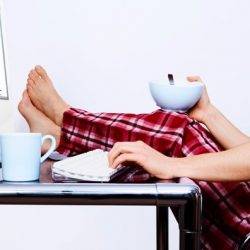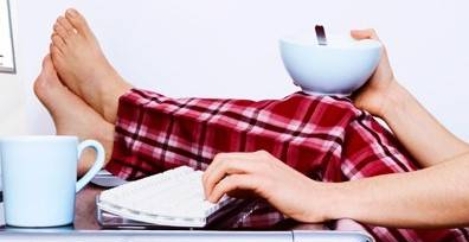June 5, 2020
Vast majority neglecting breaks when working from home
 A new study claims that “microbreaks” have decreased for 95 percent of employees during home working, as lockdown sees people glued to our desks more ever before. The ‘Working from home’ study, conducted by Wildgoose, asked employees from 133 companies throughout the UK how their working day differs at home compared to in the office, whether they wanted to continue working from home after lockdown has finished, and how companies could improve home working practices.
A new study claims that “microbreaks” have decreased for 95 percent of employees during home working, as lockdown sees people glued to our desks more ever before. The ‘Working from home’ study, conducted by Wildgoose, asked employees from 133 companies throughout the UK how their working day differs at home compared to in the office, whether they wanted to continue working from home after lockdown has finished, and how companies could improve home working practices.
One of the main findings when employees were asked which aspects of home working could be improved was that they have been taking significantly fewer microbreaks throughout the day. These are breaks lasting a few minutes which the report links to wellbeing, productivity, good company morale and a happier working environment.
The report claims that a large proportion of the working population not taking the health and safety recommended break from the desk every hour (47 percent), failing to take breaks for physical activity or stretching (50 percent), and a large portion of UK employees (61 percent) losing social aspects of work and the mental benefits that accompany them.
Further questions from the study suggest that nearly half of the study respondents (47 percent) say that they felt their mental health was being affected when working from home – companies need to address this as they would in an office.
When asked what managers could do to make home working arrangements better, employees said that the biggest areas for improvement were:
- Lack of social contact with workmates (56 percent)
- Not seeing workmates face-to-face (52 percent)
- Not protecting employee mental health (47 percent)
- Uncomfortable and impractical desks and equipment (45 percent)
- Working excessive hours (36 percent)
Conversely, however, 74 percent of those asked said that they would be happy to continue working from home after the lockdown has finished. The study also found that small businesses face greater pressure going forward to allow employees to continue working from home, with 89 percent of workers in SMEs wanting to continue, compared to only 69 percent at companies of over 1,000 employees.
Water coolers
Karen Kwong, Director of Renoc Consulting, an organisational Psychologist and wellbeing coach, comments on the findings: “Even without the lockdown, employees are encouraged to take microbreaks. These are good for their mental health as well as for their physical health. If you look at the biggest problems with desk working such as prolonged sitting and staring at a screen, this can harm the body in areas such as the spine or eyesight.
“People are encouraged to take breaks away from those postures and to stretch one’s back and do eye exercises away from the screen for at least 5 -10 mins at a time, hourly, depending on the source of the advice.
“Water cooler conversations at work will certainly provide more frequent breaks, the report claims. They have a positive impact on wellbeing and productivity because humans at their basic level are social creatures, even the most introverted of us. It actually gives us energy to socialise, even in small doses. Through casual conversations, sharing stories, or chatting about a piece of work will enhance your thinking and give you some ideas on how to improve your current project. This will bring about increased motivation, engagement and build and enhance working relationships. These all contribute to wellbeing and productivity at work.
“By having frequent microbreaks and regular interactions with others, you’re building micro communities and this is what helps individuals thrive. The social interaction and the workplace community of subtle but no less important relationship building – they all help the organisation’s productivity, as well as the wellbeing of individuals.”













